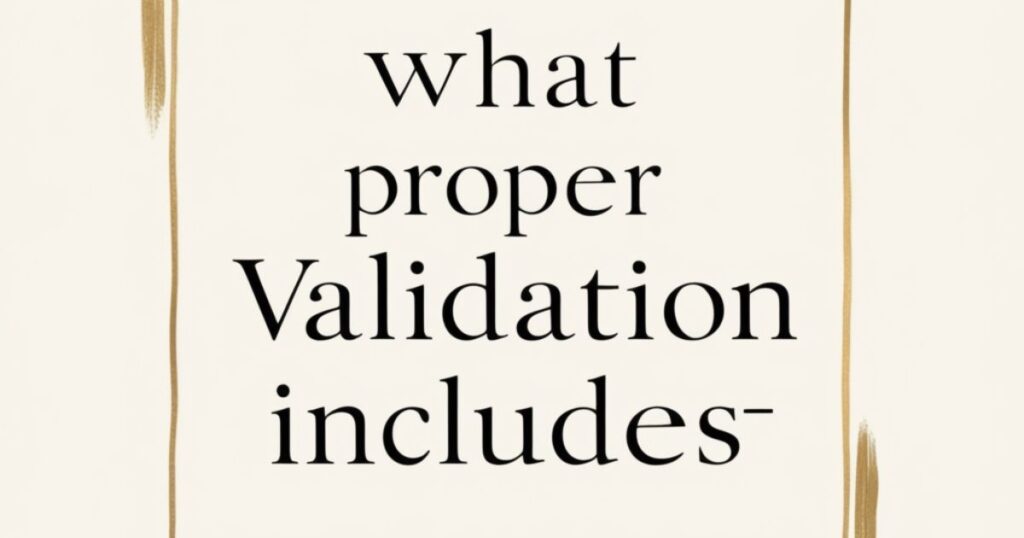In today’s economic landscape, many consumers in the United States find themselves dealing with debt collectors. Whether it’s due to medical bills, credit card debt, or other financial obligations, understanding your rights under federal law is crucial.
This comprehensive guide will walk you through everything you need to know about debt collection laws and your protections.
The Fair Debt Collection Practices Act (FDCPA): Your Shield Against Unfair Collection Practices
The Fair Debt Collection Practices Act (FDCPA), enacted in 1977, stands as the cornerstone of consumer protection in debt collection.
This crucial piece of legislation specifically regulates third-party debt collectors and prohibits abusive practices, deceptive practices, and unfair practices in the collection of consumer debts.
Understanding Who’s Covered

The FDCPA primarily applies to third-party debt collectors, but it’s important to understand who this includes:
- Collection agencies
- Debt buyers
- Lawyers who regularly collect debts
- Companies that buy delinquent debts and try to collect them
Original creditors (the company you originally owed money to) typically aren’t covered by the FDCPA, but they may be subject to state laws governing debt collection practices.
Key Provisions That Protect You
- Communication Restrictions The FDCPA sets strict limits on how and when debt collectors can contact you:
| Prohibited Time | Allowed Time | Special Circumstances |
| Before 8 AM | 8 AM – 9 PM | Different time zones |
| After 9 PM | With consumer consent | Work hours if permitted |
Expert Quote:
“The ‘777 rule’ is a common industry practice where collectors typically won’t call more than 7 times in 7 days about 7 different debts,” explains Sarah Johnson, a consumer protection attorney with 15 years of experience.
Social Media Guidelines Recent updates to the FDCPA have addressed social media contact:
- Collectors can’t post public messages about your debt
- They must identify themselves when sending private messages
- They must provide a way for you to opt out of social media communications
- Harassment and Abuse Protections The law is crystal clear: “A debt collector may not engage in any conduct the natural consequence of which is to harass, oppress, or abuse any person in connection with the collection of a debt.” This includes:
- Using threats of violence
- Publishing lists of people who refuse to pay their debts
- Using obscene or profane language
- Making repeated phone calls to annoy you
Real-World Example: In 2022, the FTC fined National Credit Adjusters $3 million for using intimidation tactics and making false threats of arrest.
- Truthfulness Requirement Debt collectors must be honest about:
- The amount you owe
- The status of your debt
- Their identity and purpose
Common deceptive practices prohibited by law:
- Falsely implying they work for the government
- Misrepresenting the legal status of a debt
- Lying about the consequences of non-payment
Read This Post: Holistic View of Business Loans and Prosperity
The Debt Validation Process: Your Right to Verify
When a collector contacts you, they must provide a validation notice within 5 days. This notice must include:
- The amount of the debt
- The name of the creditor
- Your right to dispute the debt within 30 days
- Your right to request verification of the debt
What Proper Validation Includes

A comprehensive debt validation should provide:
- Documentation showing you owe the debt
- The original creditor’s name and address
- The amount owed and how it was calculated
- Information about the age of the debt
Your Arsenal of Rights Under the FDCPA
- Right to Dispute the Debt You have 30 days to dispute the validity of the debt. Once disputed, the collector must:
- Cease collection activities
- Obtain verification
- Provide verification to you in writing
Best Practices for Disputing a Debt:
- Send your dispute via certified mail
- Keep copies of all correspondence
- Be specific about why you’re disputing the debt
- Right to Limit Contact You can send a Cease Communication Request, after which the collector can only contact you to:
- Inform you they’re ending collection efforts
- Notify you of specific actions, like filing a lawsuit
- Right to Fair Treatment Collectors cannot use unfair practices, such as:
- Adding unauthorized fees
- Threatening actions they can’t legally take
- Using false or misleading representations
State-Specific Protections
Many states have additional protections beyond the FDCPA. For example:
| State | Additional Protection |
| California | Requires licenses for debt collectors |
| New York | Prohibits collecting on payday loans |
| Texas | Requires bonds for collection agencies |
Case Study: The Impact of Knowing Your Rights
Sarah Thompson vs. Aggressive Collections Inc.
Sarah Thompson received multiple daily calls from a collector who threatened to tell her employer about her medical debt. After learning her rights:
- She documented all calls
- Sent a cease communication letter
- Filed a complaint with the Federal Trade Commission (FTC)
Result: The collector was fined $50,000, and Sarah received a $1,000 settlement for FDCPA violations.
Key Takeaways from Sarah’s Case:
- Documentation is crucial
- Knowing your rights can lead to financial compensation
- Federal agencies do take action against violators
Dealing with Old Debts: Understanding the Statute of Limitations
The statute of limitations on debt varies by state and type of debt. Once this period expires, the debt becomes time-barred.
| Type of Debt | Typical Range | Notes | Exceptions |
| Credit Card | 3-6 years | Varies by state | Can be extended |
| Medical | 3-6 years | Can be longer | Some states have specific laws |
| Auto Loan | 4-6 years | From date of last payment | Secured debt may differ |
| Personal Loan | 3-6 years | Written contracts | Oral agreements may be shorter |
Warning: Making a payment on a time-barred debt can restart the clock!
Time-Barred Debt Rights
When a debt is time-barred:
- You can’t be sued for the debt
- You still technically owe the debt
- It may still appear on your credit report
- Collectors may still attempt to collect
What to Do When Collectors Come Calling

- Know Your Rights
- Request debt verification
- Keep detailed records
- Consider recording calls (check your state’s laws first)
- Take Action
- Send all communications in writing
- Keep copies of everything
- Use certified mail with return receipt
Documentation Checklist
✅ Call logs with dates, times, and collector names
✅ Copies of all written correspondence
✅ Records of any payments made
✅ Notes from conversations
Sample Cease Communication Letter Template
[Your Name]
[Your Address]
[Date]
[Debt Collector Name]
[Debt Collector Address]
Re: Account Number [XXXX]
Dear [Collector Name]:
I am writing to request that you cease all communication with me about the above-referenced account as per my rights under the Fair Debt Collection Practices Act, 15 U.S.C. § 1692c(c).
Please note that this request does not prevent you from filing a lawsuit if you choose to do so.
Sincerely,
[Your Name]
Reporting Violations: When Collectors Cross the Line

If a collector violates your rights, you can file complaints with:
- The Federal Trade Commission (FTC)
- The Consumer Financial Protection Bureau (CFPB)
- Your state’s Attorney General’s office
What to Include in Your Complaint
- Collector’s name and contact information
- Date and time of violations
- Specific details of the violation
- Any supporting documentation
Read This Post: Mba Answer For Experienced Professionals-Notesmama
The Impact of Debt Collection on Credit Reports
Debt collection accounts can significantly impact your credit reporting. Key points to remember:
- Collections typically stay on your credit report for 7 years
- Paid collections may look better to future creditors
- You can dispute inaccurate collection entries
Your Rights Regarding Credit Reporting
Under the Fair Credit Reporting Act, you can:
- Dispute inaccurate information
- Request validation of reported debts
- Add a personal statement to your credit report
Frequently Asked Questions
What federal law protects people from debt collectors?
The primary federal law is the Fair Debt Collection Practices Act (FDCPA), which regulates third-party debt collectors and provides consumers with various protections and rights.
What are three things debt collectors are prohibited from doing?
Debt collectors cannot:
- Use threats of violence or harm
- Publish lists of consumers who refuse to pay their debts
- Contact you at inconvenient times (before 8 am or after 9 pm)
Can debt collectors contact my family about my debt?
Collectors can contact other people solely to find out your address, phone number, and where you work. They usually can’t contact these people more than once and can’t discuss your debt with them.
Special Circumstances
Medical Debt Collections
Medical debt has some unique characteristics:
- Credit reporting is delayed for 1 year
- Paid medical collections are removed from credit reports
- Many hospitals have financial assistance programs
Student Loan Debt
Federal student loans have different rules:
- No statute of limitations
- Special rehabilitation programs
- Income-driven repayment options
Conclusion
Understanding your rights under debt collection law empowers you to handle collectors effectively and protect yourself from unfair practices.
If you’re struggling with debt, consider reaching out to a credit counseling agency or consumer protection attorney for personalized guidance.
Remember these key points:
- You have significant rights under the FDCPA
- Documentation is your best defense
- Time limitations may apply to old debts
- You can dispute inaccurate debts
Remember: Knowledge of your rights is your best defense against unfair debt collection practices.
[Call to Action: Need help with debt collectors? Download our free FDCPA rights cheat sheet!]

